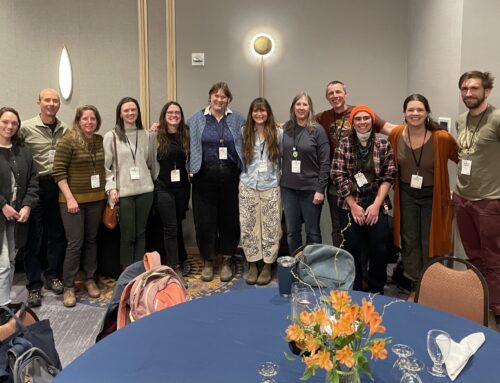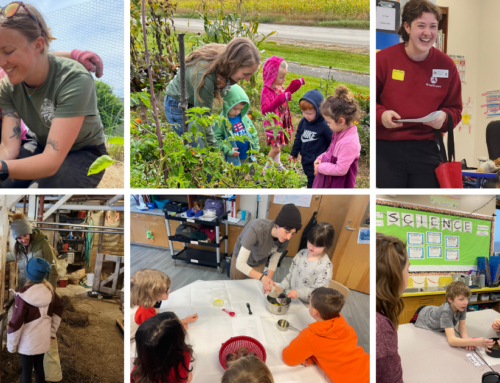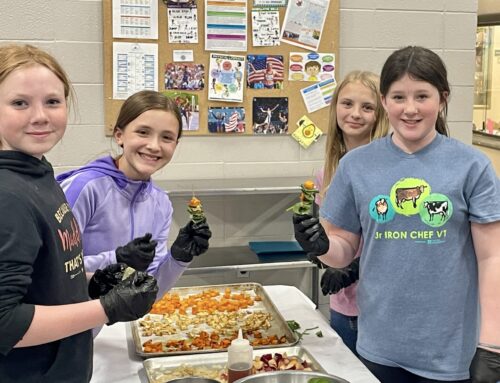By Emma Trainor
- Immune System Boost
- Did you know that skin- to-soil contact actually helps boost the functioning of your immune system? It turns out that getting “dirty” is a great way to increase the body’s resilience to a range of illnesses. According to recent research, digging in soil can expose us to a wide range of friendly bacteria and microbes that numerous studies have shown decrease the incidents of allergies and asthma in children. Before we lived in such a sterilized world, we humans had more frequent contact with soil and nature, and our immune systems became accustomed to the various microbes in a way that the modern human body is more sensitive to, and therefore more vulnerable to getting sick. Gardening will help boost your immune system and decrease your chances of catching a cold!
- Daily Dose of Vitamin D
- Who doesn’t welcome the warmth of the sun after these long Vermont winters? It doesn’t take scientific evidence to prove that the feeling of sun on our skin is a glorious one after months of darkness. It turns out that the Vitamin D we receive from the sunshine also contributes to the resilience of our immune system as well as our mental health. Gardening is a great way to get healthy doses of sunshine and Vitamin D (just remember to apply your sunscreen)!
- Physical Exercise
- Weeding, walking, squatting, watering, lugging wheelbarrows, and using tools are some common ways we engage our bodies when we choose to garden. The gentle exercise we get when spending time in the garden is accessible to people of all ages and can support us in feeling energized, alive and strong! If going to the gym and playing sports isn’t your cup of tea, gardening is a great alternative.
- Meditation
- Finding deep inner stillness and sitting in meditation for extended periods of time is oftentimes not accessible in our modern lives. In choosing to cultivate a garden, we give ourselves the opportunity to tap into the stillness and silence that comes with being in nature. Being present with the plants and giving them what they need to grow is a great way to connect with nature and yourself with care, slowness and intentionality. This can also help improve your attention span.
- Communal Joy
- Not only can gardening be meditative, it is a great way to weave community! Whether it is the garden in your backyard or a community garden that you are a part of, having the opportunity to catch up with friends and family outside over a shared activity helps foster social connectedness and contributes to a sense of belonging. What better way to nourish friendships than nourishing the soil we all depend on to grow our food?
- Lowered Levels of Stress
- Research has shown that simply having windows that have access to views of nature has the ability to significantly decrease stress levels and boost our moods. When we immerse ourselves in the beauty of nature, amidst flowers, the aromas of our favorite herbs, and the vibrant colors of fruits and vegetables that are begging to be picked, we feel good! Our breath slows. As we take in our environment and actively participate in the cultivation of plants, our cortisol levels go down and we feel more connected.
- Deeper Relationship with the Land
- The land is pulsing with aliveness. From the microscopic creatures beneath our feet to the winged ones soaring above our heads and all of the plants, animals, rocks, water and soil in between, we live among kin who are in constant dialogue with one another. When we choose to garden, we build our relationship with the land and are more connected with the flow of the seasons. When we learn about the Indigenous Peoples who have stewarded the land we live on, see the ways the landscape has changed over time, and tune-in to our current surroundings, we are able to cultivate our relationship to place and our responsibility to care for the environment.
- Fresh Fruits and Vegetables
- When the time comes in the growing season to harvest our bounty, we get to enjoy the fruits of our labor and our bodies will thank us for it! Large scale farming often uses techniques and technology that disrupt and kill the healthy microbes in soil that contribute to the nutrient density of any given crop. When we choose to cultivate our gardens, we have the opportunity to build our soil health and avoid using pesticides, which gives us organic, nutrient dense produce filled with vitamins and minerals that will nourish our bodies.
- Creativity in the Kitchen
- Once those veggies have been harvested, what do we do with them? This is a great time to nurture our creativity in discovering all of the different ways we can cook what we have eaten. Check out some VT Harvest of The Month Recipes to get inspiration on how you can prepare seasonal dishes.
- Sharing the Bounty
- Throughout the course of the growing season, we often find ourselves swimming in tomatoes, zucchini, basil, etc. that we don’t know what to do with! Gardening is a generous act to ourselves and our communities when we choose to share our harvest with others. Planning community dinners that feature items from your garden, preserving excess for you and your community for the winter and donating excess directly to your neighbors or a local food shelf are all great ways to practice generosity and foster a greater sense of connection to your community. Sharing the harvest can be the most rewarding part of gardening and bring about feelings of gratitude, fulfillment and satisfaction of a job well done!





